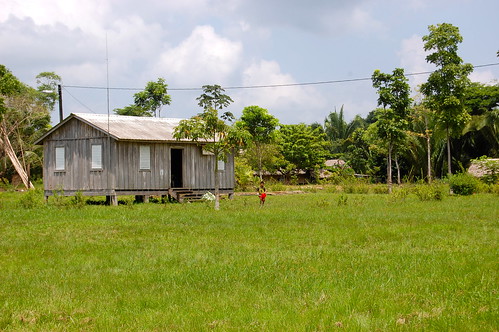Ask anyone in the Toledo District (the southernmost district of Belize where SATIIM works) what the greatest issue plaguing the district is, and you are likely to get a different answer from every person you ask. One may respond that the lack of economic opportunities is the largest issue. Another may answer that the prospect of oil drilling in ancestral lands is of greatest concern. Another may respond food security. Yet another will likely respond the expansion of the Southern Highway, cutting through communities and forests to connect Belize and Guatemala. These responses would just begin to touch on the myriad of issues facing the Toledo District.
The Toledo District is the poorest district in the country, with 79% of the population living below the poverty line. The district has the highest number of small-scale farmers in the country, and the highest forest-to-farm conversion rate in the country. As the most underdeveloped district in the Belize, many communities in the district lack basic services (electricity, potable water, etc.), and many are struggling to feed their families.
In addition to these struggles, the district is facing oil exploration by United States Capital Energy (USCE) and road construction through the countryside to complete the Southern Highway. These interventions inspire conflicting opinions. Some bitterly oppose the oil drilling and road construction, aware of countless empty promises of wealth and development, and the guaranteed environmental destruction. Others, desperate for a job and desiring infrastructure improvements, welcome these developments.
It is in this setting that SATIIM works. SATIIM, or the Sarstoon Temash Institute for Indigenous Management, was formed in 1997 in response to the establishment of the Sarstoon Temash National Park, a 41,898-acre park. SATIIM was started to work together with communities surrounding the park to manage it, employing five rangers to monitor the park.
Over time however, SATIIM has morphed with the needs of communities. It has conducted environmental awareness campaigns. It has helped fight for traditional land rights for the communities surrounding the parks. It has helped communities assert their rights to fight against oil drilling. Now, with exploratory seismic lines crisscrossing communities and the park, SATIIM is walking the fine line of alerting communities that oil companies traditionally have not honored their promises while also increasing indigenous rights so they can make informed decisions. If oil drilling is going to happen, SATIIM is working to ensure that it is done in a socially and environmentally responsible way, and that communities truly benefit.
In addition to these projects, SATIIM is keenly aware of the economic issues facing the communities it works with, and is pursuing several sustainable development projects. These projects range from sustainable agroforestry (farming in more sustainable, diverse plots) to sustainable forestry (selective and limited logging). It is SATIIM’s belief that a successful advocacy campaign involves increasing communities’ knowledge on various issues and increasing communities’ capabilities through sustainable development projects. It is with this model and belief that SATIIM is engaging communities, seeking to make a dent in the variety of issues plaguing the Toledo District.
Posted By Laura Burns
Posted Jun 29th, 2012




